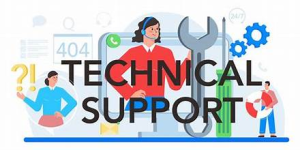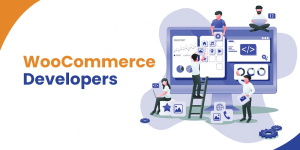Introduction: The New Age of Intelligent Leadership
The Future of Strategic Leadership is transforming how global organizations operate. Discover how AI, ethics, and data-driven decisions are shaping modern business management in 2025. Learn the top leadership skills, technologies, and strategies needed to thrive in the future of intelligent, ethical, and data-powered leadership.
The Future of Strategic Leadership is here. Discover how AI, ethics, and data-driven intelligence will transform global business management in 2025. Learn the top strategies leaders need to stay competitive, ethical, and innovative in a rapidly evolving digital world.
The global business landscape is undergoing a profound transformation — one shaped by artificial intelligence, data-driven insights, ethical capitalism, and hybrid organizational structures. Traditional models of leadership, once defined by intuition and experience, are now being redefined by algorithms, automation, and analytics.
Today’s strategic leaders must navigate a world where machine learning forecasts market shifts, AI assistants guide executive decision-making, and data visualizations replace boardroom guesswork. Yet amid this technological revolution, human judgment, empathy, and ethical vision remain indispensable.
This article explores the future of strategic leadership — where innovation meets responsibility, and where AI doesn’t replace leaders but redefines leadership itself.
1. The Future of Strategic Leadership: How AI Is Redefining Decision-Making in Global Enterprises

Artificial intelligence has moved from a supporting tool to a strategic co-pilot for business leaders. In 2025 and beyond, organizations leverage predictive analytics, natural language processing (NLP), and generative AI to make faster, smarter, and more accurate decisions.
AI as the New Strategic Advisor
AI enables executives to simulate potential outcomes before committing to high-stakes moves — from market entry strategies to merger evaluations. Platforms like ChatGPT Enterprise, Google Vertex AI, and Microsoft Copilot assist leaders in analyzing competitive landscapes, identifying risk factors, and optimizing supply chains.
For instance, Unilever and Amazon use AI-driven dashboards to monitor global operations in real time, predicting bottlenecks and identifying consumer trends long before they appear in quarterly reports.
From Intuition to Intelligence
Leadership in the AI era is no longer about “gut feeling.” It’s about augmented intuition — blending human experience with machine precision. This fusion of man and machine ensures decisions are data-backed, transparent, and strategically aligned with long-term corporate goals.
2. Ethical Capitalism: Reimagining Profitability Through Purpose and People
As AI and automation accelerate productivity, ethical capitalism emerges as a necessary counterbalance. Modern leadership demands more than financial acumen — it requires moral intelligence.
The Shift from Profit to Purpose
Today’s consumers and employees expect brands to stand for something beyond profit. Companies like Patagonia, Unilever, and Microsoft have redefined capitalism by aligning growth with sustainability, inclusivity, and environmental responsibility.
Strategic leaders must answer: “What kind of value are we creating — and for whom?”
This mindset shift from shareholder capitalism to stakeholder capitalism is reshaping business management at its core.
AI and Ethical Dilemmas
While AI brings efficiency, it also raises ethical questions: bias in algorithms, job displacement, and data privacy. The modern CEO must balance technological ambition with ethical governance, ensuring automation enhances human dignity, not diminishes it.
In essence, ethical capitalism transforms profit into purpose, positioning companies as agents of societal good rather than mere market players.
3. Business Management in the AI Era: Balancing Technology, Talent, and Transformation

The future of business management lies in achieving strategic harmony between machines and minds. Successful enterprises are those that combine technological sophistication with human creativity and adaptability.
Technology: The Catalyst for Reinvention
AI tools now manage everything from recruitment and forecasting to logistics and customer engagement. Yet, technology is only as powerful as the humans who wield it.
Forward-thinking organizations are investing in digital literacy, AI training, and adaptive leadership programs to prepare managers for a hybrid future.
Talent: The Human Core of Transformation
Automation doesn’t eliminate human roles — it elevates them. Business leaders must re-skill employees to handle strategic, analytical, and creative functions that machines can’t replicate.
In companies like Accenture and IBM, AI performs routine tasks, freeing analysts to focus on innovation, collaboration, and storytelling through data.
Transformation: Leadership Beyond Change
True transformation isn’t about adopting tools; it’s about cultivating a growth mindset. The leaders of 2025 must drive cultures that embrace experimentation, encourage agility, and celebrate continuous learning.
4. From Hierarchies to Hybrid Teams: The Evolution of Modern Business Management
The rigid corporate pyramid is fading. In its place arises the networked, hybrid organization — where collaboration transcends geography, and leadership is distributed rather than centralized.
Hybrid Work as the New Normal
The pandemic permanently shifted how enterprises function. Hybrid teams, powered by tools like Slack, Notion, and Microsoft Teams, operate across continents, time zones, and cultures. Strategic leaders now manage global digital ecosystems, balancing productivity with inclusion and mental well-being.
Agile Leadership in Action
In this new paradigm, leadership is not confined to titles — it’s about influence, empathy, and empowerment.
Modern managers must become coaches, not commanders — cultivating trust and accountability within decentralized teams. Agile frameworks like Scrum and OKRs (Objectives and Key Results) ensure alignment even across complex, hybrid structures.
The Rise of the Human-Centric Enterprise
Even in a digital-first world, human connection remains a company’s greatest competitive advantage. Businesses that prioritize empathy, flexibility, and psychological safety will lead the next wave of innovation.
5. How Data-Driven Leadership Is Reshaping Organizational Success

The modern CEO is as much a data scientist as a visionary.
Decision-making now relies on data democratization, AI-powered dashboards, and real-time analytics that transform abstract numbers into actionable intelligence.
Data as a Strategic Asset
Enterprises no longer treat data as a byproduct — it’s the lifeblood of growth. Using platforms like Power BI, Tableau, and Google Looker Studio, leaders track every performance metric: from customer sentiment to environmental impact.
Predictive Leadership
Data-driven organizations don’t just react — they anticipate.
Predictive analytics enables businesses to forecast trends, model potential disruptions, and align strategies accordingly. For instance, Netflix’s recommendation engine and Tesla’s fleet analytics showcase how data-driven leadership powers both personalization and innovation.
Building a Culture of Insight
Effective leaders foster data fluency at all levels of the organization. When every employee can interpret data meaningfully, the company becomes a learning organization — agile, informed, and unstoppable.
6. Conclusion:
The Age of Augmented Leadership
The future of business management belongs to leaders who blend intelligence with integrity, and automation with empathy.
Artificial intelligence may redefine decision-making, but human vision defines the purpose behind every algorithm.
Strategic leadership in 2025 demands five core capabilities:
- Technological fluency — understanding AI, automation, and analytics.
- Ethical responsibility — leading with transparency and trust.
- Empathic communication — inspiring people beyond performance metrics.
- Data literacy — making informed, evidence-based decisions.
- Transformational mindset — adapting continuously to a fast-evolving world.



